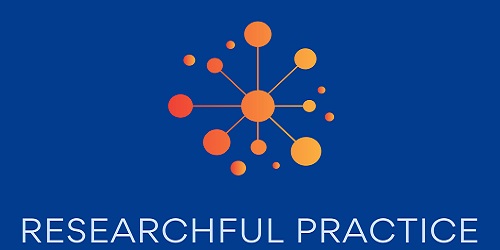Researchful practice in early years settings
Educators are leaving the Early Years sector in unprecedented numbers, but conducting and engaging with research may improve job satisfaction and workforce morale.
The challenge
Research-engaged practice is vital to the development of self-improving schools and teacher professionalism. Educators who engage with and conduct research are able to base educational decision-making on context-specific evidence, to critically evaluate externally produced research and national guidance about ‘what works’ and enter more confidently into dialogue with stakeholders.
Research impact - Supporting early years educators with research-informed practice
The Researchful Practice Toolkit supports teachers to access, evaluate, and conduct research in their own settings. Using our online self-study course as part of the toolkit, we supported four nursery teachers in Bristol, Gloucestershire and Berkshire to design and execute qualitative research projects to address a question they had identified in their own settings.
We provided online workshops and 1:1 clinics which allowed the teacher-researchers to reflect together on their learning, interests, challenges and research ideas. The teachers from the partner schools spoke enthusiastically about the experience of working through the toolkit and building on their existing skills to embed research into their everyday practice.
For example, in terms of CPD, one teacher-researcher noted: "It’s definitely, definitely been an eye-opener, and you know, been something good to do, I think for my own professional development."
Another teacher-researcher commented: "I used the toolkit from start to finish, from thinking about and creating my question to then analysing and evaluating the findings. The toolkit was a fantastic guide to the process and showed how to get the most from what I was exploring."
Furthermore, teachers spoke of gaining valuable insights from using the toolkit to conduct their own research, which enabled them to see the long-term benefits of research-engaged practice:
"It was just a real learning curve for me about qualitative research and doing interviews, and a real eye opener about how different practitioners perceive things, absolutely fascinating!"
"[When doing research,] You just see things that you don't see in a regular time. So, I feel like that's the thing I would definitely take away, it's just almost putting on a different head... your eyes are just much more open, I think."
"You always think of research as these really big things. And for me... what it's helped me realise is I can use it for anything within my setting to make sure it's effective. Make sure it's working or not working, whatever the answer might be, and that's definitely something I will carry through..."
Teachers also reported using their research evidence to generate a direct impact within their schools and beyond. For example, one teacher had secured funding to redevelop the school's outdoor space based on her participatory research with the children.
The findings of another project looking at new ways of questioning as part of the maths curriculum and the importance of using opened question for inclusivity led to a deeper understanding of questioning in the setting and the need for allowing time for children to process the question and formulate their answers, with the findings feeding back into staff CPD. The same teacher had also used the toolkit to access research literature on her topic, through which she deepened her understanding of what she had observed. A third teacher-researcher used the findings of his project to provide feedback on an assessment system that was being trialled across the local authority's early years settings.
We have also developed links with local authorities through hosting two knowledge exchange events with support from Early Education and ECHO, as well as wider outreach via the National Association for Language Development in the Curriculum (NALDIC) special interest group for early years.
One of these, a local authority in Lancashire with 600+ early years settings, is considering rolling out the toolkit to interested schools. Bristol Local Authority is also taking an interest in the outcomes of this current research and is keen on involving other settings in our projects.
Key themes from the data will inform academic publications, blogs and further presentations for the early years educators. Giampapa has been awarded further funding for scaling up the use of the toolkit and a University Enterprise Fellowship (2023/24) to continue to explore its commercialisation potential.
Underpinning research
Over recent years there have been frequent calls for the professionalisation of the early years sector and for a clearer progression ladder within it. This impact story reports on two linked collaborative projects led by Dr Frances Giampapa at the School of Education, University of Bristol, and Dr Claire Lee from Oxford Brookes University.
This project built on the findings of a previous ESRC IAA funded project; namely, that the earlier versions of the ‘Researchful Practice’ toolkit had been helpful in supporting teachers’ research literacy, but that they had limited capacity to participate in synchronous workshops.
The current project aimed to understand the impact of the toolkit, redeveloping it as a self-study online course for advancing researchful practice across different types of nursery settings, with different types of demographic makeups, needs and priorities in order to understand how it could create research learning communities.
The research team were keen to understand how teachers responded to and used the toolkit to develop their research literacy and conduct in-house projects that aligned with their existing priorities and the needs of their children. They were also interested in the effects of using the toolkit on teachers’ identities as professionals working in challenging post-Covid times in the early years sector, which is often overlooked in terms of national policy.
For more information about the toolkit, email: researchful-practicetoolkit@bristol.ac.uk.
Key information
- The Researchful Practice Toolkit supports teachers in accessing and evaluating research, conducting research in their own settings and embedding research within their everyday practice.
- Using the toolkit to conduct their own research enabled teachers to gain valuable insights and recognise the long-term benefits of research-engaged practice.
- Teachers reported using their research evidence to generate a direct impact within their schools and beyond.
Researchers
- Dr Frances Giampapa, Senior Lecturer in Education, University of Bristol
- Dr Claire Lee, Research Fellow, Department of Psychology, Health and Professional Development, Oxford Brookes University
Non-academic partner
- St Werburgh’s Park Nursery School, Bristol
- Fairford Primary School Little Explorers, Gloucester
- Hungerford Nursery School, Berkshire
- Filton Avenue Nursery School, Bristol
- Jez Butler, Independent Consultant
Related research groups
Publications
Date published
December 2023

 Study Education
Study Education
Join us in improving educational environments for future generations


